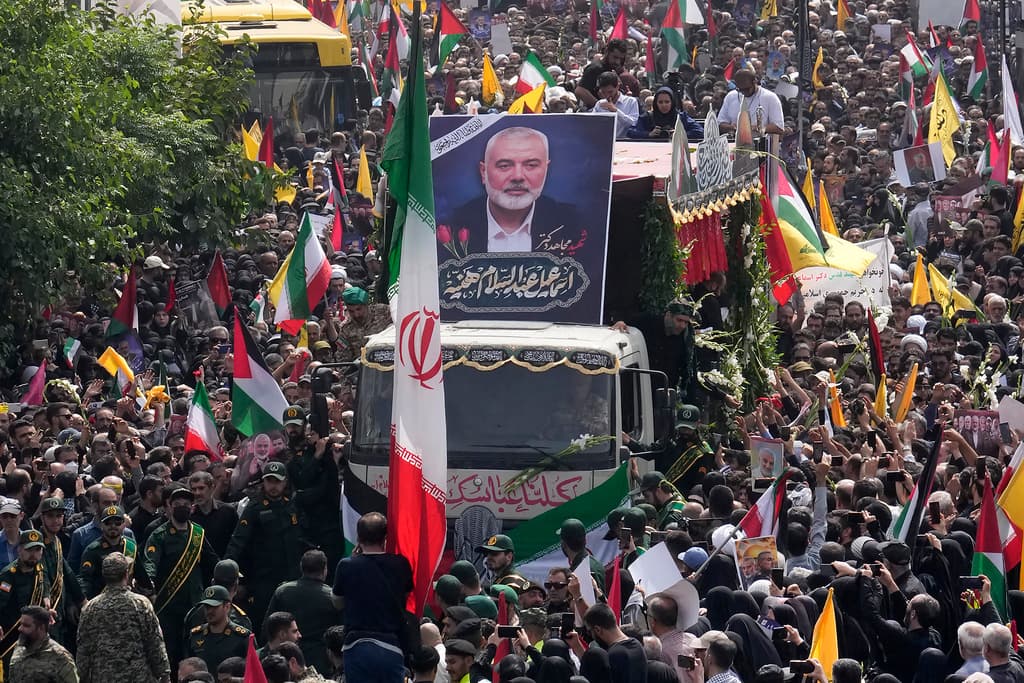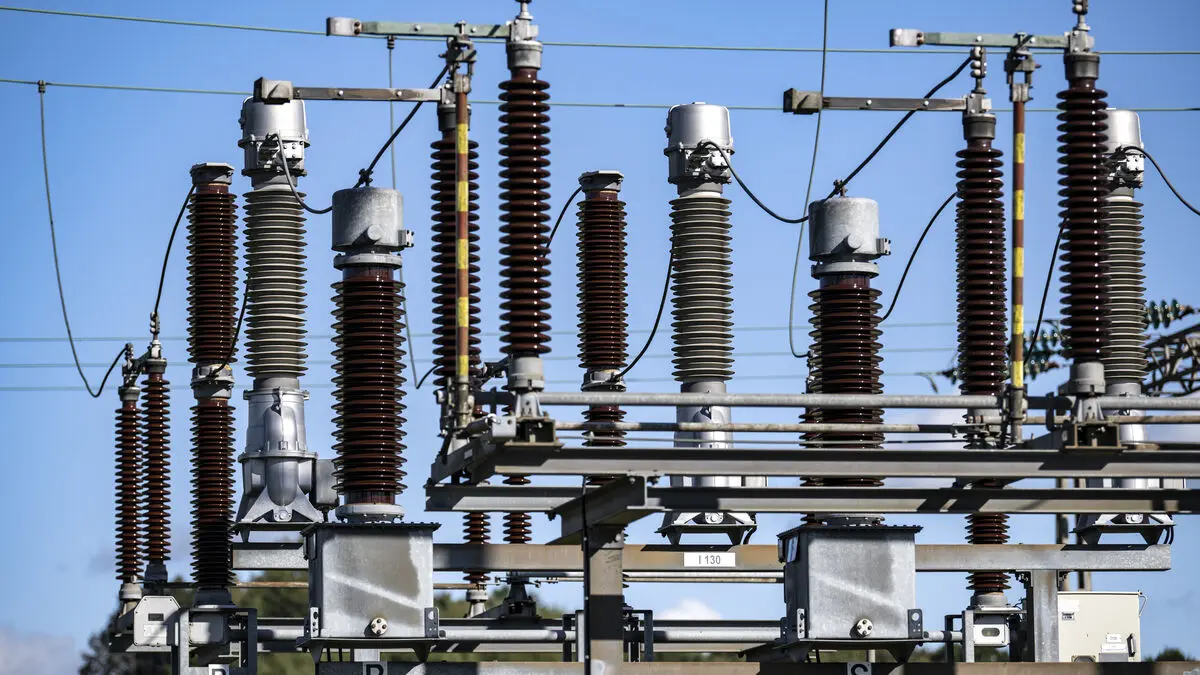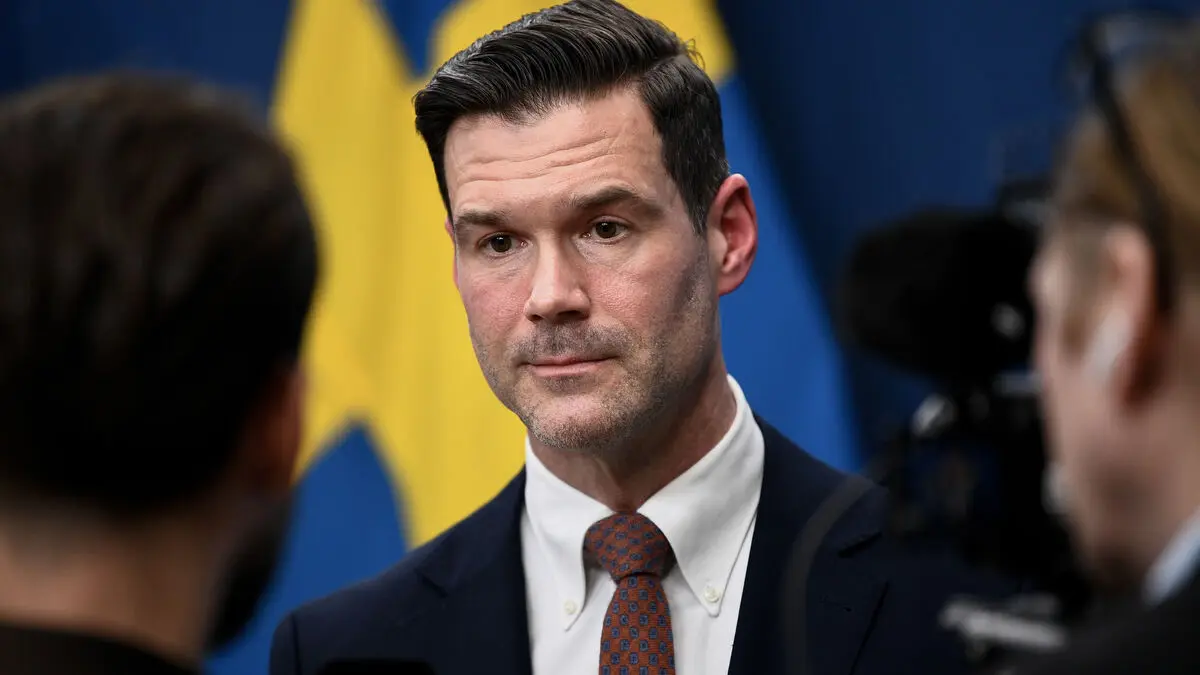What caused Haniya's death is disputed. This week, reports have emerged that a bomb previously smuggled into his room killed the Hamas leader.
And on Saturday, The New York Times published information that dozens of people have been arrested in Iran, including several high-ranking officials within the country's intelligence service. They are suspected of having played a role in the assassination of Haniya, who was Hamas' political leader.
Died after installation
The Hamas profile was in Tehran to attend the inauguration of Iran's new president, Masoud Pezeshkian. Only hours after the ceremony on Tuesday, he was killed when what was described as a smuggled bomb exploded at the military residence where he was staying.
The residence is used for high-ranking guests, secret meetings, and recreation, and is run by Iran's Revolutionary Guard. The bomb was reported to have been placed in Haniya's room two months ago, which is seen as a massive failure for Iran's security service.
The perception that Iran cannot protect its homeland or its allies can be fatal for the regime. If the enemy cannot overthrow the Islamic republic, they can decapitate it, says Ali Vaez, director of the International Crisis Group in Iran, to The New York Times.
Sjukilos projectile?
But on Saturday, the Revolutionary Guard, which is labeled as a terrorist organization by the US and Canada, came up with contradictory information: Haniya was killed by a robot, a "projectile with a warhead", which was allegedly fired from a location outside the residence where he was staying, claims the Revolutionary Guard in a statement according to AFP.
Both the terrorist-labeled Hamas and Iran accuse archenemy Israel of being behind the assassination that killed Haniya and his Palestinian bodyguard. In the statement, the Revolutionary Guard claims that Israel had the support of the US in the attack.
But Israel has not taken responsibility for the murder.
The British Telegraph reports simultaneously that the Israeli security service Mossad allegedly hired Iranian agents to hide bombs in Haniya's room, and that the murder was originally planned to take place in May. The newspaper refers to high-ranking sources within the Revolutionary Guard.
Iran's supreme leader Ali Khamenei has issued an order to strike back at Israel. In Saturday's televised statement from the Revolutionary Guard, it was stated that the "Zionist regime" will be met with a "hard revenge at the right time and place".
When the Islamic Revolutionary Guard was formed in Iran shortly after the Islamic Revolution in 1979, it was to protect the new religious state from potential coup attempts, especially from Iran's national army. It is also where the religious regime's loyalty lies, not with the Iranian people.
The Revolutionary Guard consists of ground forces, air force, and navy, as well as the notorious Basij militia and Quds force, which is responsible for operations abroad. The Quds force's mission is mainly to organize and sometimes even lead local forces abroad in activities that benefit the Islamic Republic of Iran.
The Revolutionary Guard also has its own intelligence agency.
In addition, the Revolutionary Guard, or IRGC as it is internationally known based on the English name Islamic Revolutionary Guard Corps, controls large parts of Iran's economy through companies in, among other things, Iran's important fossil fuel sector.






